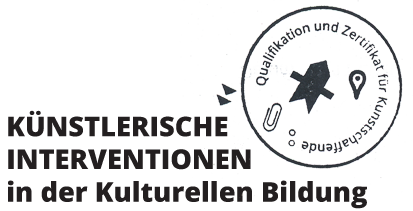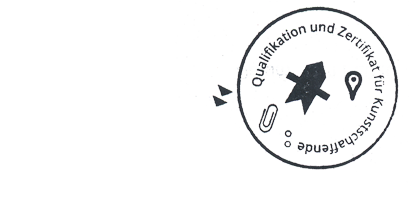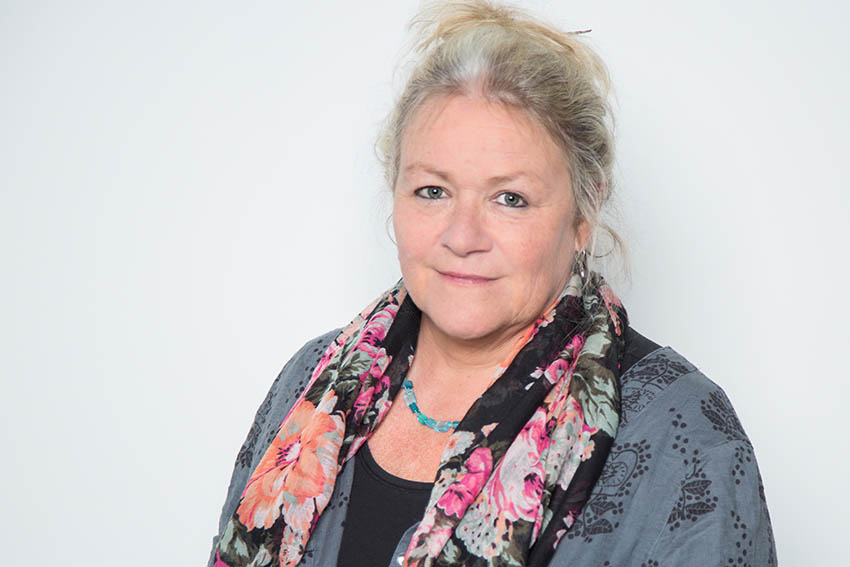



Birgitta Heller-Mevißen is an actor, management assistant in event organisation and culture agent. She worked at several German-language theatres for ten years and was managing director of two major sociocultural culture centres in Leer and Dortmund for more than 20 years.
She has been working as a culture agent since 2011 and has given schools in Moers, Krefeld, Duisburg, Münster, Marl and Neukirchen-Vluyn advice and support. As a consultant and lecturer, she moderates teams in orientation and change process and trains actors in the thematic field of Cultural Education.
She has been trained to perform both systemic coaching and team coaching and makes use of creative moderating methods to quickly and efficiently generate results.
What is your professional focus?
In school development, Cultural Education projects can give crucial impulses and effect changes. In the processes this requires, schools and creative artists have to be supporting in reaching agreement on how to overcome obstacles, discover resources and develop structures. Here, my role is that of the mediator and facilitator. Asking, listening, contributing expertise and setting impulses – to achieve this, I apply classic coaching and setting methods enabling all those involved to take part in a creative and artistic manner, thus enabling them to experience new approaches.
In my work as a lecturer, I explain the potentials and opportunities of these methods – and with the methods themselves, I provide teams and actors with the tools enabling them to engage precisely at the interfaces between systemic perception, artistic work and the classic tools of facilitation.
What potentials do you see in the certificate course “Artistic Interventions in Cultural Education” for your specialist field?
In many schools, artists are integrated in multi-professional teams with an increasing diversity of skills among their members. While they dispose of considerable autonomy and artistic independence, it does also make sense for them to have system knowledge and expertise in the schools field of work. How can artistic processes and high-quality projects be put into practice in what is often a rigid school context? Assessing possibilities, formats and existing material resources is often already an important precondition for successful and sustainable work. Here, it is important to focus discourses on solutions and on giving impulses in order to discuss the conditions for artistic work in schools.
Which changes are needed at cultural policy or education policy level to strengthen the potentials of cooperation with artists for Cultural Education in Germany?
Decision-makers in politics and school administration ought to know and appreciate that in their massive change processes, schools need facilitation and expertise to find new approaches to developing lessons and social togetherness. As formative forces which have an effect in change processes, art and culture as well as their representatives ought to be intensively involved in the discourses on new approaches. The nonverbal, uniting force of creative actions and projects is an invaluable help in conciliation and orientation processes. The role and the mission of the artists ought to be welcome and well-defined. The artists also ought to be adequately and sustainably remunerated for their involvement and for contributing their special expertise.
Birgitta Heller-Mevißen at “Artistic Interventions in Cultural Education”
Together with Saskia Köhler, Birgitta Heller-Mevißen is taking part in the course framework as a lecturer in Module 2: “Theoretical concepts and discourses”, and in Module 8 and additional online formats, she is in particular responsible for the “Train the Trainer” programmes. If you have any queries or are interested in cooperating, you are welcome to contact zertifikatskurs [at] uni-hildesheim [dot] de.